
Does your Subaru Outback have lights that come on and a clicking noise when you turn the key, but it won’t start? This article is meant to help you diagnose this exact scenario.
The good news is that this is a fairly common no-start situation and is usually pretty easy to repair. A weak battery is the most common cause of no start and a clicking sound.
Diagnosis
Quick Diagnosis Chart
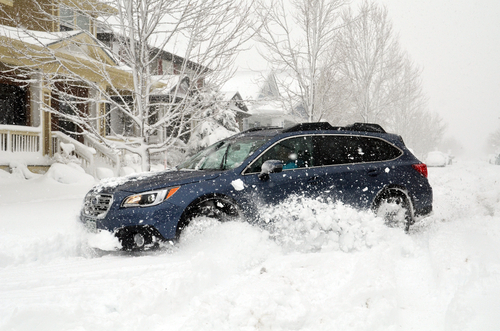
| Cause | Clicking Sound | Notes |
|---|---|---|
| Low Battery | Fast clicking | Caused by a bad alternator, Battery that can’t hold a charge, or slow drain |
| Corroded Battery Terminals | Fast clicking | There’ll be obvious corrosion on the battery |
| Loose Terminal | Fast clicking | Movable by hand |
| Alternator | Fast or slow | Battery light turns on while driving |
| Starter | One big clunk | Hammering it may get it to work |
Here we’ve listed a few things that can help you narrow down why your Outback clicks but doesn’t start.
Did the Battery Light Come on While Driving?
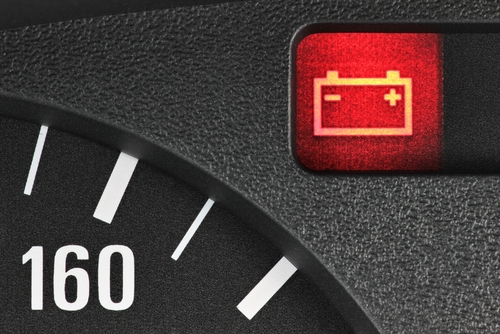
An alternator that hasn’t charged the battery enough to provide sufficient voltage for the next start can cause your car to click but not start, even if the lights are still on.
The battery or alternator light coming on while driving is good anecdotal evidence that the alternator has gone bad. It’ll usually come on when your Subaru Outback’s charging system voltage drops below 13.5 volts.
If your Outback’s battery or alternator light came on while driving the last time it ran, and now it won’t start, that’s a strong indication that your car’s alternator couldn’t charge the battery enough.
You can test it with a multimeter (see below).
Is it Clicking or Clunking?
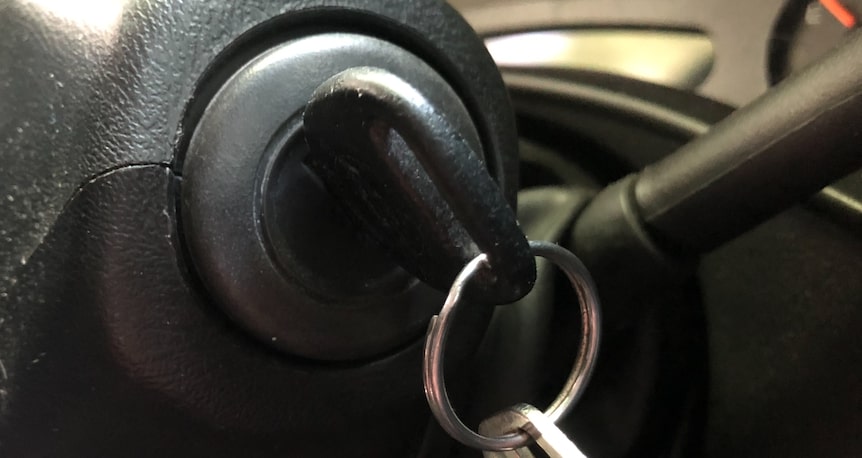
There’s a big difference between a rapid clicking noise and a single loud click/clunk when you go to start your Outback.
A rapid clicking sound is likely a battery-related issue. There’s an audio file above that you can listen to. That’s usually a discharged battery or battery terminal issue.
If you hear a single clunk when you turn the key, it can still be the battery, but it’s more likely a starter. A series of rapid clicks is usually battery related.
Try this First
Turn everything off that requires electricity in your Outback. Every electrical system draws amperage from the battery. If it’s just a little too low on juice to crank the starter, you might be able to turn your vehicle over by temporarily disabling the following:
- Automatic headlights
- Stereo
- Climate control
- Dome light (just make sure the door is closed)
No Start But Lights Come On/Clicking Causes
A weak battery is the most common cause of a no-start and clicking condition in the Subaru Outback. We’ve listed the causes and things you can check in an order you can check in a parking lot if you’re stranded.
1. Loose or Corroded Battery Posts/Terminals (Likely)
The first thing you should do is check the battery cables at the terminals. The terminals are what connect the battery to your car’s starter and wiring harness.
Loose Battery Terminal
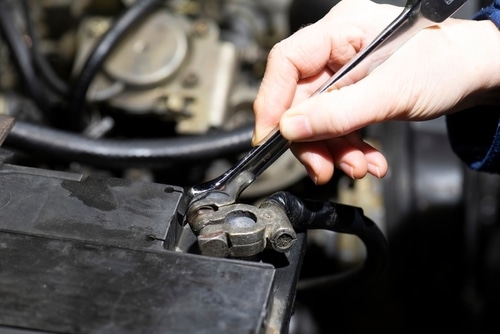
Tools needed: Wrench
If your battery terminals aren’t corroded, grab them one at a time and see if they wiggle. They shouldn’t move at all. If they wiggle, they’ll need to be tightened.
If you’re stranded without a wrench, push down and twist the loose terminal. Now, try starting your Outback. Repeat this process a few times until you can get it to bite and start. Once you get home, tighten the terminal properly.
Corroded Battery Terminal/Posts
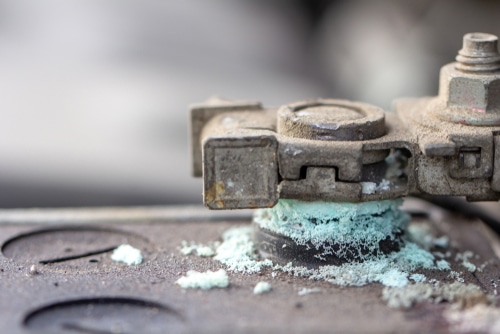
Tools needed: Wire brush, Wrench, Gloves
CAUTION: Battery acid can burn the eyes and skin, proceed at your own risk
If your Outback’s battery posts are corroded, you’ll need to clean them off enough to get back on the road.
How to Clean a Battery Terminal
- You’ll need a wrench to loosen the terminal(s). Always start by taking off your car’s negative terminal first. Make sure not to touch your wrench to both terminals at one time (you’ll get zapped). Don’t let the wrench hit bare metal when taking off the positive terminal (zapped).
- Next, move on to the post. You can use a wire brush or sandpaper if you’ve got some around. Most gas stations sell battery post cleaners or wire brushes.
- Put the newly cleaned positive terminal back on first, then move to the ground side.
Once the corrosion is cleaned, put the battery terminals back on the posts and see if your Outback starts. If it does, make sure to let it run for a bit just in case the battery isn’t fully charged before shutting your car off.
2. Battery Insufficiently Charged (Most Common Cause)
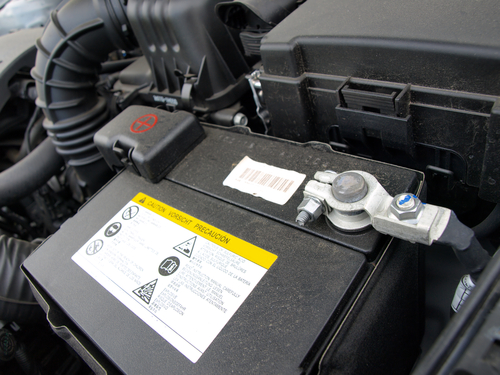
An insufficiently charged battery is the number one reason your Subaru Outback is clicking but refuses to start. When this happens, either the battery is bad and can’t hold a charge, or the alternator isn’t charging it enough.
A battery’s main job is to provide enough electricity to power the starter motor. Once your car has started, the alternator can provide enough voltage to run everything.
Your Outback’s battery voltage can get too low to turn the starter over, even if it is still powering the lights. A parasitic battery drain can also cause the battery to drain.
Testing the Battery
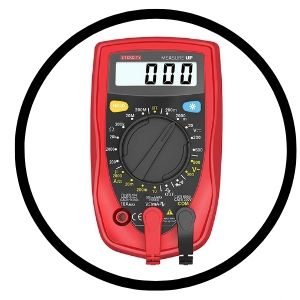
You can test your car’s battery, or you can have it tested. Here’s how to test it with a multimeter:
- Set the multimeter to volts and touch the negative and positive terminals.
- With the engine off, a healthy battery should read at or north of 12.6 volts.
- After jumping your Outback (see below), the voltage should read somewhere between 13.5 and 14.5 volts. If it’s lower than that, the alternator is probably bad.
If you don’t have a multimeter available, you can take your battery to the local parts store, and they’ll test it for free. You’ll have to pull it and have someone run it up there with you. It takes a little while, they’ll charge it for you and see if it holds a charge. Be prepared to wait a bit.
How to Jump Start Your Outback
If you believe your battery is too low to start your car, jump starting it will get you back on the road. Here’s how to do it:
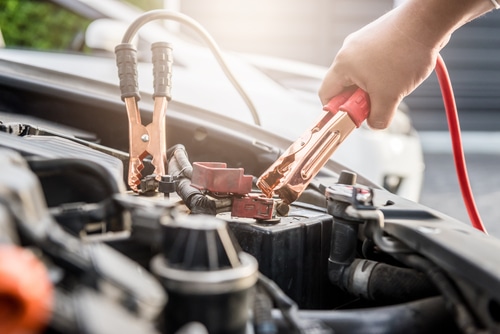
- Connect to the positive terminals first: Connect the red jumper cable to your car’s positive battery terminal, then connect the other end to the running vehicle’s positive battery terminal.
- Connect to the negative terminals: Connect the black jumper cable to your car’s ground terminal. Then connect the other ground wire to a good ground source on the running vehicle. There’ll usually be a spot close to the battery labeled ground. Any engine or accessory bolt that’s clean will usually work fine. The ground on the running vehicle’s battery will technically do the job too, but there’s a small chance that hooking up this way can start a fire at the battery, so don’t do it.
- Do nothing: Let the battery charge for a few minutes.
- Engage your Outback’s Starter: If it seems like it’s acting differently (flashing less or trying to start), adjust the jumper cable contacts and let it charge some more.
- Remove the jumper cables: Reverse the process.
3. Faulty Starter Motor (Somewhat Likely)
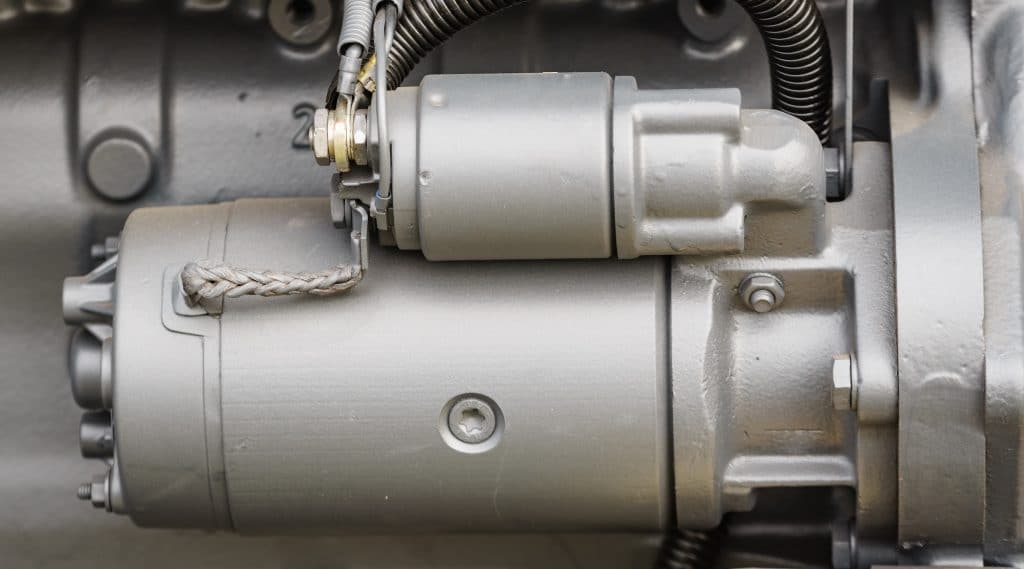
After you’ve confirmed that the battery voltage is OK and the battery terminals are tight and corrosion free, the next most likely cause of a clicking noise and no start condition is a bad starter motor.
A bad starter will usually make more of a clunk than a click when turning the key forward.
If you’re stranded, you can always take a hammer to the starter and see if that’ll get it to turn over.
4. Bad Ground Connection to the Starter
Your Outback’s starter uses a strong ground cable that should be securely bolted to the engine. If the connection has gotten weak due to corrosion, melting, or rodent damage, the vehicle won’t be able to start.
A quick visual inspection will quickly tell you if anything is wrong and only takes a few seconds.
Conclusion: Subaru Outback Clicking and Won’t Start
A dead battery is the most common cause of a clicking sound and no start in the Subaru Outback. Checking the battery cables is something that you can do on the spot and fast.
If you have to jump-start your car, make sure to drive it straight to a place that will test your car’s battery. Otherwise, it might not start again when you park.
